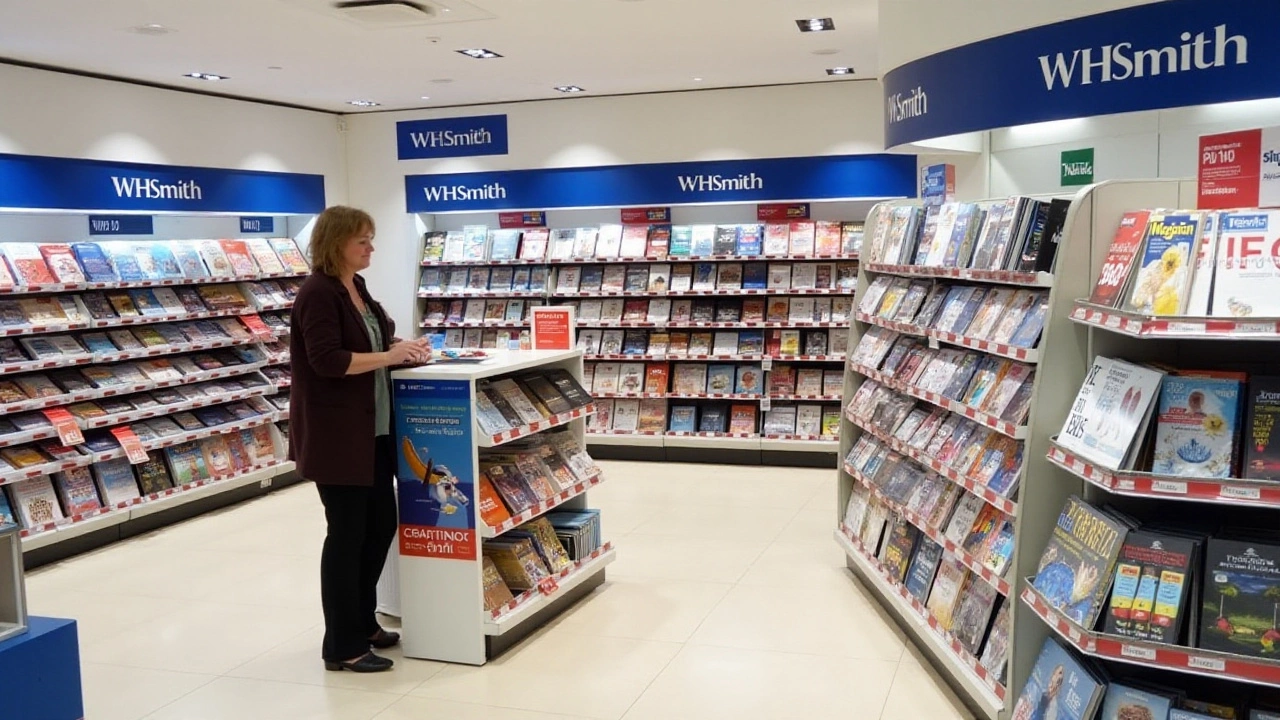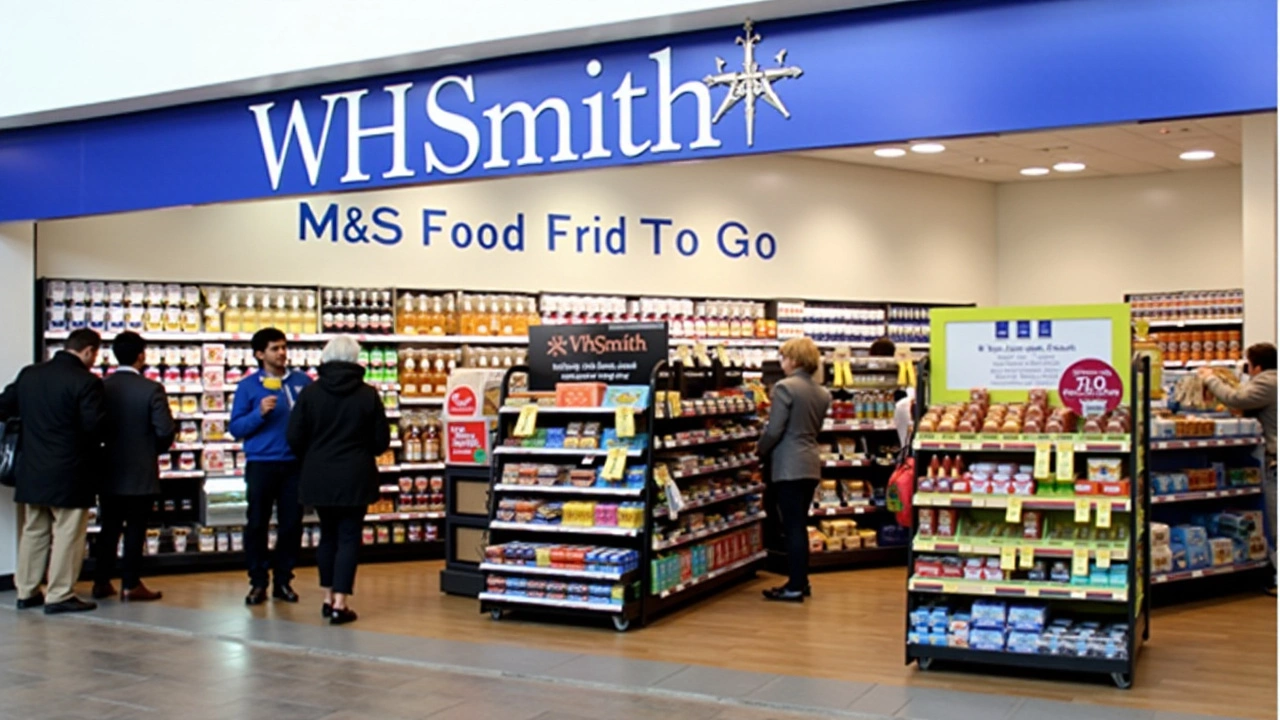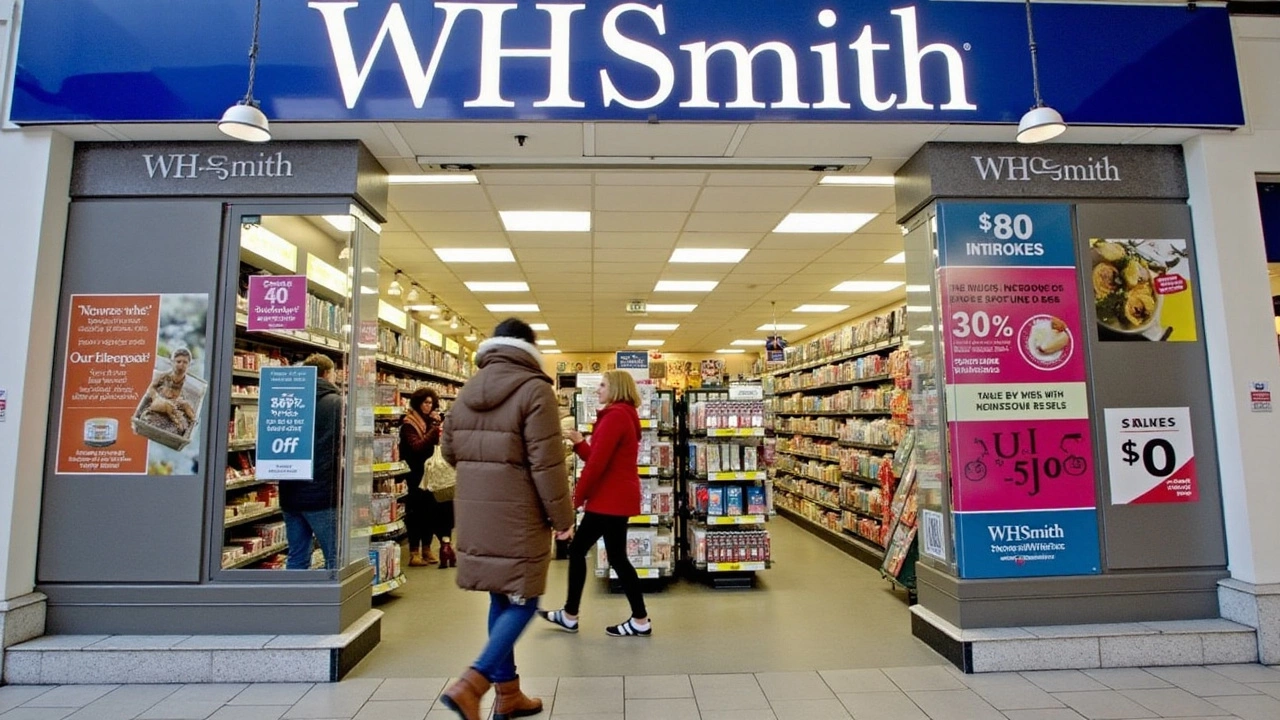Amidst a rapidly changing retail landscape, WHSmith, a name synonymous with British high street retail, finds itself at a pivotal moment in its long-standing history. As retail dynamics continue to shift, the company is reportedly engaging in confidential negotiations to potentially divest its entire high street business. This strategic move signifies a substantial shift in focus towards the more prosperous and expanding travel retail division, a segment that is not merely surviving but thriving in the current economic climate.
The Scope of WHSmith's High Street Operations
WHSmith’s high street division, with its extensive retail footprint, encompasses around 500 stores dotted across the UK, providing employment to a sizable workforce exceeding 5,000 individuals. These stores are iconic fixtures in town and city centers, offering a diverse range of products including books, stationery, and greeting cards. This division, however, recorded a flat operating profit of £32 million in the previous fiscal year, a figure that pales in comparison to the financial might of its sister division, the travel retail business.
The Rising Dominance of Travel Retail
In stark contrast to the challenges besetting the high street stores, WHSmith's travel retail arm is enjoying a surge in growth. Operating in strategic locations such as airports, railway stations, and hospitals, this segment contributes to a staggering 75% of the company's revenue while accounting for 85% of its total profits. This divergence in performance between the two branches of the company's operations is sweeping. The travel retail sector is buoyed by a combination of increased passenger traffic and a burgeoning presence in international markets, notably the United States and various healthcare facilities throughout the UK.

Strategic Rationale Behind the Divestment
The anticipated sale of WHSmith’s high street business represents a calculated decision designed to refocus company resources and attention on the far more lucrative travel retail sector. Executives view the disposal as a logical step in consolidating their strategic priorities, prioritizing segments that offer higher profitability margins and growth trajectories. This potential shift also comes on the heels of market pressures faced by brick-and-mortar retail outlets, exacerbated by the digital transformation impacting consumer shopping behavior.
Market analysts have long speculated on the evolutionary path of WHSmith’s high street presence, observing an industry-wide shift away from traditional retail formats. High street businesses like Debenhams and BHS have encountered similar challenges, with WHSmith’s possible divestment reflecting a broader industry trend responding to changing consumer demands and the rise of online shopping platforms.
Potential Impacts and Considerations
The potential sale could not only reshape WHSmith’s business model but also ripple through the retail sector, influencing employment and the economic landscape of the high streets. Discussions hint at the sale process being shepherded by renowned financial advisors at Greenhill, yet prospective buyers remain hidden within the folds of confidential negotiations. The prospective transaction could manifest over the coming months, signaling a significant turning point for WHSmith.
Stakeholders and market observers await an official announcement possibly to be filed with the London Stock Exchange, which could provide further clarity and direction for investors and employees alike. Shares in WHSmith reflected investor anticipation, closing at 1148p on Friday, following a modest decline of about 5% over the past year. The company’s broader strategic maneuvers might be laying the groundwork for a more robust and geographically expansive business model in the near future.

The Future View
While the high street division grapples with an era of dwindling footfalls, the travel retail unit’s robust growth offers a beacon of hope for WHSmith’s future. Stakeholders remain cautiously optimistic about the potential outcomes, recognizing that this realignment may steer the company towards sustained profitability and operational streamlined focus in an evolving marketplace. As these developments unfold, the broader implications for the retail sector will become clear, potentially setting a precedent for other retailers navigating similar challenges.
In conclusion, WHSmith's divestment strategy exemplifies a compelling example of traditional businesses innovatively adapting to contemporary challenges, showcasing the resilience and agility required to thrive in fast-evolving markets.
